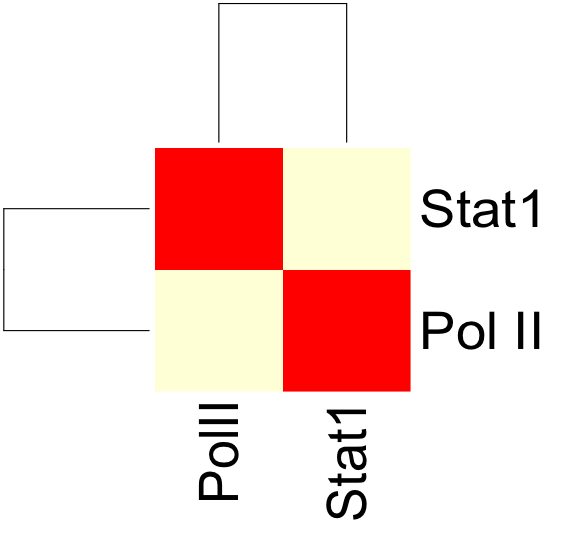ACT IntegratedExample
From GersteinInfo
Justin.jee (Talk | contribs) (Created page with 'ACT Integrated Example: Whole-Genome ChIP-Seq experiments Here we describe how to use ACT on a set of two large example files from ChIP-Seq experiments. To begin, download the…') |
Justin.jee (Talk | contribs) |
||
| Line 18: | Line 18: | ||
http://act.gersteinlab.org/sgr2wig.pl | http://act.gersteinlab.org/sgr2wig.pl | ||
| + | |||
| + | The resulting correlation matrix can be plotted in R: | ||
| + | |||
| + | [[Image:Corr_wg_heatmap.png]] | ||
*Saturation | *Saturation | ||
Revision as of 19:06, 9 September 2010
ACT Integrated Example: Whole-Genome ChIP-Seq experiments
Here we describe how to use ACT on a set of two large example files from ChIP-Seq experiments.
To begin, download the signal files (from Gerstein Lab's PeakSeq project) here:
http://archive.gersteinlab.org/proj/PeakSeq/Scoring_ChIPSeq/Results/PolII/Signal_Maps/PolII/
http://archive.gersteinlab.org/proj/PeakSeq/Scoring_ChIPSeq/Results/STAT1/Signal_Maps/STAT1/
These are zipped signal files for PolII and Stat1. After unzipping the files for each transcription factor, it is useful to cat the signal tracks for the individual chromosomes together so that all the signals are in only two files. In this walkthrough they will be referred to as PolII.sgr and Stat1.sgr.
- Aggregation
- Correlation
It is necessary to convert the signal tracks from sgr to wig format. A script which does this can be found here:
http://act.gersteinlab.org/sgr2wig.pl
The resulting correlation matrix can be plotted in R:
- Saturation
It is necessary to convert the wig files to bed files without a "signal" component. The following script takes wig files and converts them into bed files, with coordinates representing the regions of the signal track which are above a certain threshold (in this case 0).
http://act.gersteinlab.org/wig2bed.pl
Since there are only two signal tracks, the Saturation and Correlation analyses provide overlapping information.

